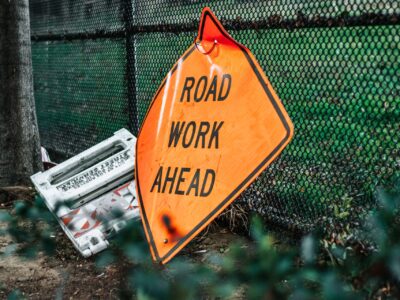A Call To Action: FCW Calls on Legislators to Fix the Law
May 29, 2020
By Douglas H. Flint
Conflict between the Georgia Constitution and Georgia Law fails to protect property owners’ rights in obtaining attorneys fees and expenses in condemnation cases
It happens often: The government wants to seize your private property for a public project and claims to have appraised the property and offered a fair price. However, you know your land is worth significantly more than the government’s appraisal. The land where they propose to build a highway has been owned by you and generations of your family for decades. Or it may have been a business you poured all your hard-earned resources into. How can you guarantee your constitutional interest of receiving a fair price is protected?
The Georgia Constitution guarantees that every property owner in the state will receive “just and adequate compensation” if the government, or a company acting under the authority of the government, takes land for a purported public necessity (such as a road, power line, or sewage treatment plant). We all have been schooled to believe that the right to full payment is inviolable. Unfortunately, under current law in the State of Georgia, property owners often do not receive full just and adequate compensation. How can the law in Georgia and Georgia’s own Constitution be inconsistent to each other? Landowners almost always have to bear the cost of their attorneys’ fees, which results in a less than complete recovery for the value of their property.
When a governmental entity seeks to acquire private property, it will often obtain an initial appraisal that undervalues your land, attempting to acquire the property for a fraction of its true value. Assuming the government fails to successfully negotiate a voluntary sale of your land, it can file an action in court for a condemnation of the property. Taking property by means of eminent domain is a weapon that the government always possesses, and it often wields it when when a landowner refuses the government’s low-ball offer and insists on being paid the full value of the property being taken.
When the government behaves wrongfully in an eminent domain case, the condemnation actions can sometimes be dismissed by the courts. If such a result occurs, a landowner is usually entitled to recover attorney fees and expenses from the government. Sadly, this right was solidified in the law only as recently as 2006 when the Georgia Legislature enacted the Landowner Bill of Rights. Prior to that, a landowner had no guarantee of recovering his/her legal fees, even for wrongful actions on the part of the government.
Although the Georgia Legislature took some steps to protect landowners in 2006, it should still do more. In all Georgia condemnation proceedings in which a landowner merely seeks to get fair compensation for the land being taken and damaged, he or she has almost no ability to recover legal fees and expenses from a government even if it has low-balled the property owner. THIS NEEDS TO CHANGE.
When a government makes its initial low offer to a property owner, the property owner is left with the sole option of going to court to enforce his/her constitutional rights and challenge the one-sided undervalued appraisal. This means hiring a lawyer and incurring expenses of litigation to prove that the government owes more money for the forceful taking of the property. The problem is that when a landowner incurs the legal expense of protecting his/her constitutional rights from such overreach, the net result paid is an amount less than what the Constitution guarantees to that landowner (“just and adequate compensation”). Consequently, the process does not protect the landowner’s constitutional rights, and landowners are almost always deprived of full compensation for their land.
Georgia should protect its citizens better than that. It should also ensure that the laws pertaining to condemnation are consistent with Georgia’s Constitution. Neighboring states such as Florida have enacted laws protecting their landowners from this kind of activity. Florida law requires the government to pay the landowner’s legal fees and expenses in addition to the payment due for just and adequate compensation for the value of property when the government has not offered sufficient compensation to the landowner (see e.g. §73.092 Fla. Stat.). This more accurately satisfies the constitutional requirement, as landowners are entitled to the complete recovery of their real property value determined by a judge or jury.
Flint, Connolly & Walker, LLP calls upon the Georgia Legislature to enact protections for Georgia’s landowners so that the legal fees and expenses borne by landowners may be recovered in condemnation verdicts. It is only with such protections that the wrongful low-value offerings made by the government in these cases will be stopped. Contact your State Representatives about this important issue to let them hear from their property-owner constituents.
FCW has relentlessly represented numerous clients in condemnation cases — always representing the landowner — to protect their rights and recover the maximum possible under the law when government and big corporations use eminent domain to try to take land away. FCW’s attorneys have won countless condemnation dismissals and recovered millions for its clients, and have had extensive success in the past recovering legal fees and expenses for its clients who are victims of wrongful condemnations. The first step for any landowner to recover full value for condemned property is finding the right lawyer.
Douglas Flint is a senior partner at Flint, Connolly & Walker, LLP and focuses on representation of private property owners to protect and defend their property rights. He graduated from Emory University School of Law and has practiced in north metro Atlanta for the entirety of his career.

